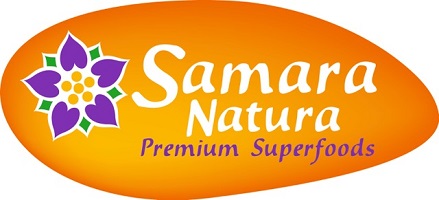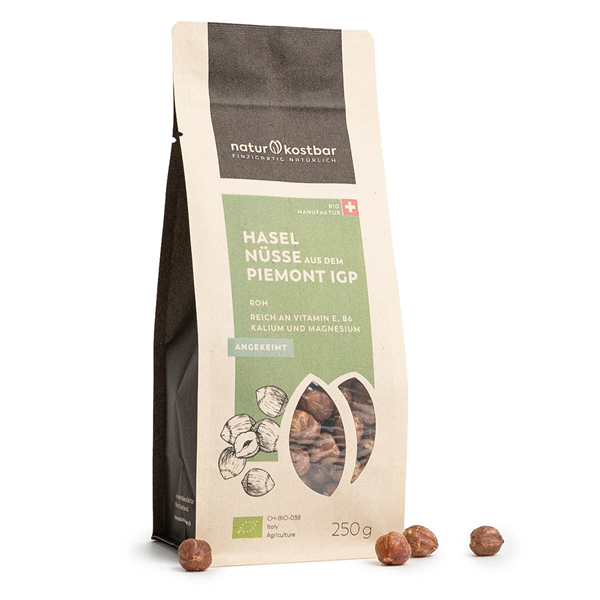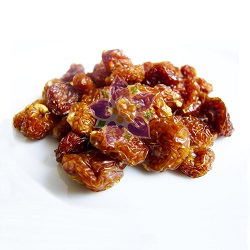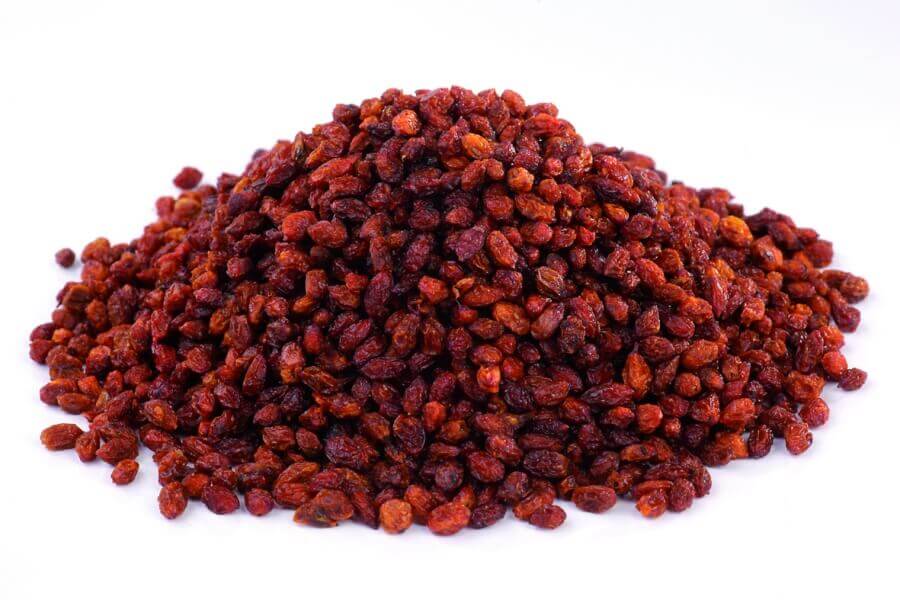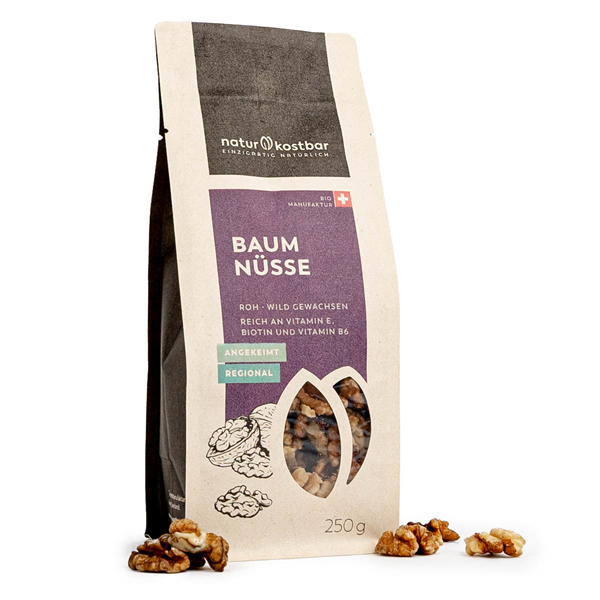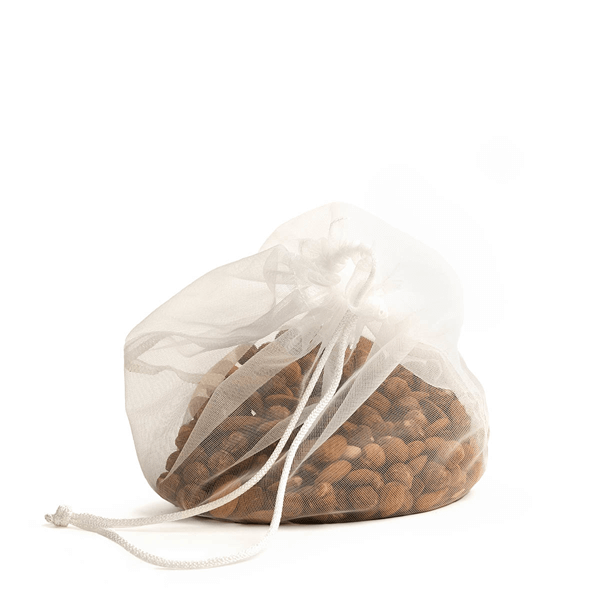| Quantity | Unit price | Base price |
|---|---|---|
| To 2 |
CHF 19.90*
|
CHF 7.96* / 100 Gramm |
| From 3 |
CHF 18.91*
|
CHF 7.56* / 100 Gramm |
Available, delivery time: 1-4 days
Product information "Piedmont hazelnuts sprouted organic Naturkostbar"
Organic sprouted hazelnuts - double the magnesium and calcium content
The organic hazelnuts from Piedmont are soaked and sprouted in the Naturkostbar factory for several hours. They are then dried for 24 hours at a maximum temperature of 42° C.
Germination neutralises the phytic acid present in the hazelnuts and significantly increases the nutrient density. In addition, the hazelnuts can be digested better, which also improves nutrient absorption.
Use of sprouted hazelnuts
Like normal hazelnuts, sprouted hazelnuts are suitable as a snack on their own or mixed with dried fruit and cocoa beans to make a delicious trail mix.
Additional information
Contents: Bag with 250g.
Caution: May contain pieces of shell.
Origin and production: Organic hazelnuts from Piedmont (Italy), sprouted in the Naturkostbar Manufaktur in Uetendorf near Thun.
Organic certificate: CH-BIO-086
Nutritional values of sprouted hazelnuts
| Nutritional values Ø | per 100g/100ml | %1 |
|---|---|---|
| 1 Reference quantity for an average adult (8400kJ/2000kcal) | ||
| Energy | 2650kJ (643kcal) | 32% |
| fat | 59.5g | 85% |
| of which saturated fatty acids | 4.2g | 21% |
| of which monounsaturated fatty acids | 46.6g | 311% |
| of which polyunsaturated fatty acids | 6.5g | - |
| Carbohydrates | 6.9g | 3% |
| thereof sugar | 4.3g | 5% |
| Dietary fibre | 9.7g | 19% |
| Protein | 15.2g | 30% |
| salt | 0.01g | 0% |
| B-carotene (provitamin A) | - | - |
| Vitamin A | - | - |
| Vitamin B1 | 0.27mg | 25% |
| Vitamin B2 | 0.1mg | 7% |
| Vitamin B3 | 1.3mg | 8% |
| Vitamin B6 | 0.5mg | 36% |
| Vitamin B12 | - | - |
| Vitamin C | - | - |
| Vitamin D | - | - |
| Vitamin E | 27mg | 225% |
| Vitamin K | - | - |
| biotin | - | - |
| calcium | 160mg | 20% |
| chloride | 11mg | 1% |
| chromium | - | - |
| iron | 3.6mg | 26% |
| fluoride | - | - |
| Folic acid/folacin | 41µg | 21% |
| iodine | 6.5µg | 4% |
| Potassium | 720mg | 36% |
| Copper | - | - |
| magnesium | 160mg | 43% |
| manganese | - | - |
| molybdenum | - | - |
| Pantothenic acid | 1.2mg | 20% |
| phosphorus | 320mg | 46% |
| selenium | - | - |
| Zinc | 2.9mg | 29% |
Login
